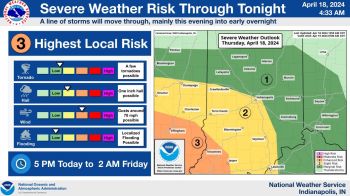
INDIANAPOLIS — A proposed Indiana bill would ban picketing or protesting outside of a person’s home.
Senate Bill 348, Crimes against public administration, would make residential harassment a Class C misdemeanor “to picket before or about a person’s dwelling with the intent of disturbing the person in the person’s dwelling.” But, the bill specifies that this would be only after a person refuses to disperse if ordered.
“We’ve tried to craft the legislation in a way that provides opportunity for police officers to tell folks that they are in fact violation of the law, and then make the arrest if they refuse to comply,” co-author of the bill, Sen. Scott Baldwin said to WISHTV.
Sen. Baldwin said it will be very narrow circumstances where a citizen could be in violation of the bill.
Tuesday, the Senate’s Corrections and Criminal Law Committee held a hearing on the bill, drawing in bipartisan reactions both for and against the bill. While they continue to work on the bill and have yet to vote on it, advocates say it’s necessary due safety concerns over rising political tensions and conflict.
Sen. Baldwin said that the bill came to him from The Indiana Prosecuting Attorneys Council, “They had experienced some instances where there was protesting outside the homes of prosecutors and other citizens.”
An IU constitutional law professor, Steve Sanders, says that the word harassment in the bill can have a vague definition. Senate Bill 348, he told to WISHTV, put’s extra limitations beyond current laws concerning time, place, and manner in protesting. “It is regulating the nature of your expressive activity itself,” Professor Sanders said.
While not entirely unconstitutional, Professor Sanders said it could still pass, “There are ways in which a law can still be constitutional even if it’s not a time, place, manner restriction…but it’s a harder lift.”
Also included in the bill, were changes that makes the penalty for battery on a public safety official a Level 4 felony if there is serious bodily injury or involves bodily fluid infected with hepatitis, tuberculosis, or HIV.
Senate Bill 348 would make false reporting of law enforcement misconduct a Level 6 felony, increased from it’s current Class B misdemeanor status.













